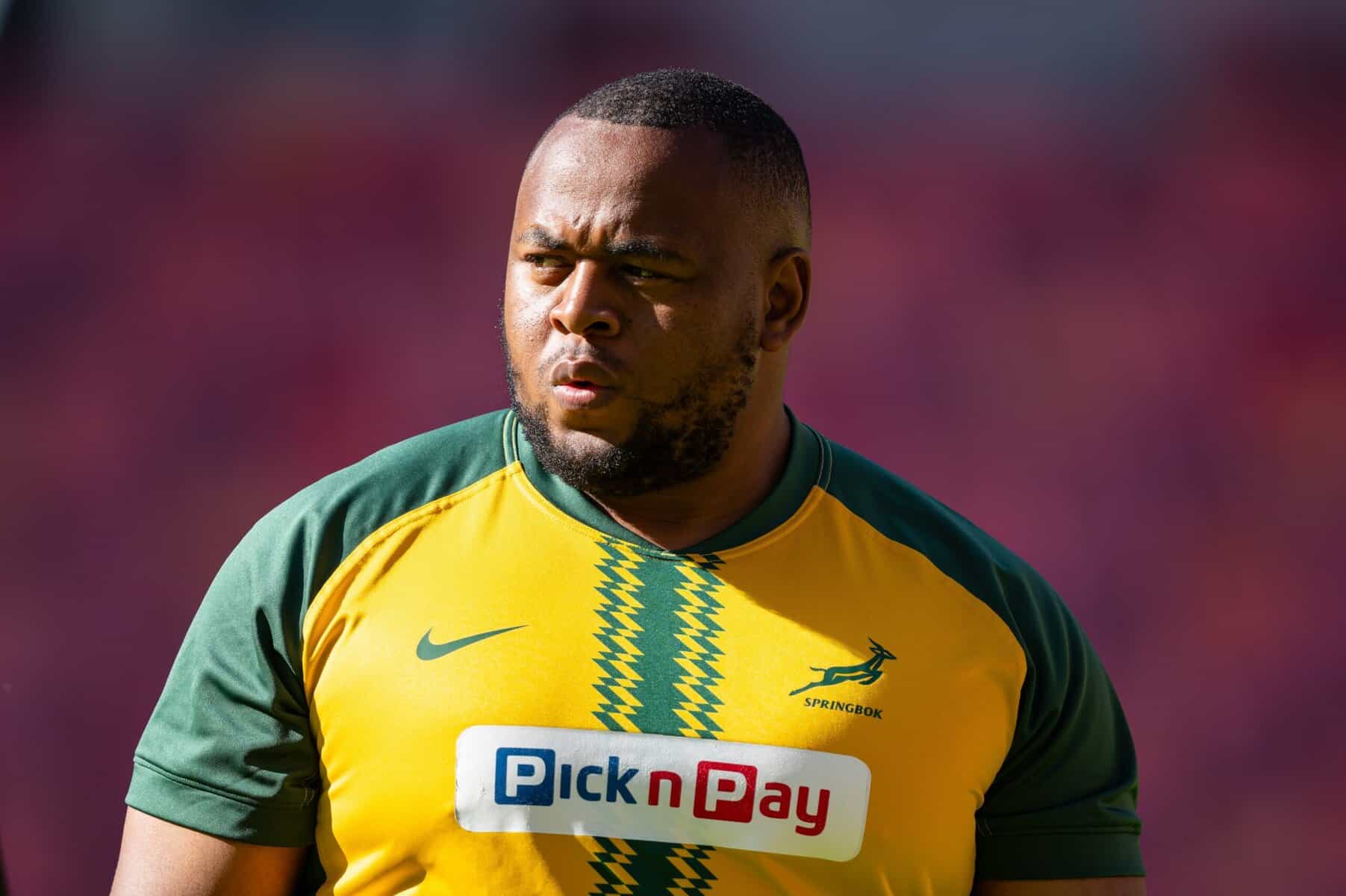The countdown to Auckland is thick with intrigue, because the Springboks vs All Blacks Eden Park test will hinge not only on history and aura, but on who wears South Africa’s No 8 jersey. The champions fly out with belief restored after Cape Town, but the selection puzzle at the back of the scrum adds a human edge to a contest already swollen with meaning. For a team bent on defending their Rugby Championship title, getting it right in the shadow of the world’s most intimidating record feels like the decisive first move.
Loose forward puzzle that could define the contest
If there has been one thread running through the Springboks season, it is flux at eighthman. Across six matches, South Africa have used five different players in the jersey, a rotating cast that has kept everyone guessing. Only Jasper Wiese has started more than once, yet he remains suspended for one more game after a red card against Italy, with a likely return pencilled in for Wellington on 13 September.
The options for Auckland form an unusual blend of continuity and disruption. Jean-Luc du Preez missed Cape Town through illness but stays in the frame, Siya Kolisi is touring after a knee scare and is an option at No 8, and Kwagga Smith just produced an all-action audition in Cape Town. Cobus Wiese, who featured against Georgia earlier in the season, has not been picked to tour, a reminder of how tight the margins are in this campaign.
Injuries have also forced hands. Cameron Hanekom, Elrigh Louw and Juarno Augustus are sidelined, while Evan Roos is out of favour. The result is an open lane for someone to seize, because at Eden Park, selection is not just depth chart admin, it is identity and intent wrapped into one.
Kwagga Smith makes his case in Cape Town
Smith did more than fill in against Australia, he set the tone. He scored a try, harried the breakdown and punched above his weight for 80 minutes, the type of performance that sticks in a coach’s mind when a cauldron like Eden Park beckons. For a player long valued as a bench spark, he offered proof that he can stitch intensity across the full canvas.
He was also measured about what comes next. Looking ahead to Auckland, Smith framed the opportunity with calm urgency, noting the lessons learned from the loss in Johannesburg and the rebound in Cape Town. His words felt like a window into a group that has absorbed some bruises, and filed them under fuel.
“It’s a massive game going to Eden Park. I think even when we lost the other game in Auckland a few years back there was a lot of disappointment that we didn’t play well. For us, it’s about learning from the first game against Australia, which we lost, and this one in Cape Town, and taking those lessons into the next match.”
The humility is part of the appeal. Smith said he is grateful for any role, start or bench, and that every opportunity must be used to prove yourself. That tone fits a Springbok DNA built on competition, and it is why the No 8 call feels less like a risk and more like a chance to sharpen their edge.
Back to the way they like to play
There was steel and clarity in Cape Town as the Springboks beat the Wallabies 30 to 22. The difference from Ellis Park was immediate, a stronger set-piece, more forward dominance and authority under the high ball. The result kept the title defense alive, and it brought something just as valuable, a return to an identity the players trust.
Captain Jesse Kriel captured the mood. He spoke of pride, of a week that tested character, and of a team that found itself again. He also nodded to the crowd, describing how the swell of support powers their work on the field.
“We kind of got back to the way we like to play. When we go overseas, we know what rugby and what our results do for this country. All the support, the messages, the videos on social media really make a difference, and the team gets a lot of energy from it.”
The Pollard axis and an aerial edge
Handre Pollard’s fingerprints were everywhere in Cape Town. He kicked 3 from 3 in conversions and 3 from 3 in penalties, and a pinpoint cross-kick created Canan Moodie’s try. He was named man of the match, which he promptly deflected, but the control he brought to the game will be central in the plan for Auckland.
The tactical recalibration was stark. The Boks kicked 35 times at DHL Stadium compared to 18 the week before, a choice shaped by conditions and strategy. The field was heavy after rain, and the aerial battle was the right lever to pull, a reminder that South Africa understand how to bend a contest to their strengths when the stakes rise.
“It was a combination of tactics and conditions that forced us into kicking a bit more. We knew what we had to do. It is getting a bit tough on a guy receiving a high ball, but our wings are unbelievable in getting there. We will always keep that as one of the strengths of our game going forward.”
Eden Park history and South African motivation
Eden Park carries a record that rattles visiting teams before the anthems. The All Blacks have not lost there in 31 years, a fact that sits alongside an older ache for South Africa, they have not won at the ground since 1937. Layer in the 57 to 0 beating in Albany in 2017 and the fast start they conceded at Mount Smart in 2023, and you see why this Springbok group speaks about learning, not just performing.
It is not only New Zealand who have payback on their mind. As Smith hinted, South Africa have their own scorecard of disappointments in Auckland, and a need to show they are better than the snapshots those days left behind. That is where the human thread of this rivalry lives, in memories that sting and in the chance to write a different sentence.
Selection watch for Auckland and Wellington
The calendar is loaded. The Springboks start at Eden Park on 6 September, then they head to Wellington for the second All Blacks test on 13 September, followed by a week’s break and then two matches against Argentina, first in Durban and then in England. Every choice now reverberates across that run, from the loose trio balance to the aerial specialists who will chase Pollard’s kicks.
Jasper Wiese is expected to slot straight back in for Wellington once his suspension is done, which sharpens the Auckland decision even more. Kolisi is on tour and available, Du Preez remains an option after illness, and Smith has just put down a compelling marker. The 36-man squad departs on Tuesday, and with travel comes clarity about the roles each player must fill.
Whatever the selection, the mission is clear. The Springboks must beat the All Blacks in New Zealand to keep their title defense on track, and they must do it at a venue that refuses visitors. That is the kind of equation this team tends to embrace, because it forces focus, and because it unites a group under pressure.
Front row note and Ntlabakanye unavailable
There was a sobering update in the front row picture as Asenathi Ntlabakanye was ruled out of consideration for the two New Zealand tests after an adverse analytic finding in an anti-doping test. SA Rugby explained that the non performance enhancing substance was prescribed by a specialist physician, taken under medical supervision and declared transparently, with the player disputing a violation.
The tighthead had just begun to tread the Test stage. He debuted against Italy in July off the bench, then featured off the bench at Ellis Park against Australia. He also played against the Barbarians in June, though that was not a Test, and his Lions form had marked him out as one to watch.
What Cape Town told us about the Boks
Beyond the scoreboard, the second Wallabies test offered a blueprint. South Africa asserted themselves in the air, matched it with a firmer scrum and lineout, and managed the tight moments with more patience. Canan Moodie, Smith and Eben Etzebeth supplied the tries, but the team’s collective calm was the story.
Fraser McReight, in his first start as Wallabies captain, called it a fierce physical battle and praised his team’s fight under adversity. His respect underlines how quickly a week can swing in Test rugby, and how rapidly a narrative can reset. The Springboks will take that reset into Auckland, not as a guarantee, but as a template for the work required.
Three things that will matter in Auckland
- The No 8 decision will shape the breakdown and contact rhythm,
- the aerial battle will dictate territory and tempo, with Pollard’s boot and kick chase pivotal,
- discipline and set-piece composure must hold when Eden Park’s pressure bites.
Energy from home and a chance to write the next chapter
The human current pulsing through this tour is impossible to miss. Kriel spoke of what overseas results mean back home, and how messages and videos from supporters can lift a squad. That shared energy becomes a kind of pact, the team gives its best and the country feeds belief back to them.
Smith framed it in the language of pride after Cape Town, saying they knew what went wrong the week before and how critical it was to fix it. That is what makes Eden Park such a compelling stage for this team. It offers no shortcuts, only the test of whether lessons learned can become habits under the brightest lights.
The All Blacks will be fierce, the stadium unforgiving and the record unblinking. The Springboks know all of that, and still they go, carrying a selection gamble at No 8, a sharpened tactical plan and a conviction that their best game is not a theory. For a rivalry built on respect and edge, that sounds like the perfect way to begin.






